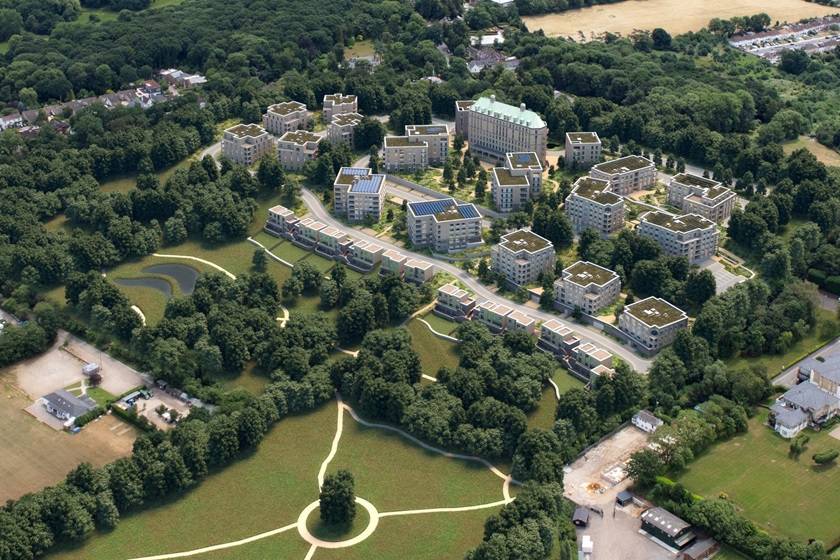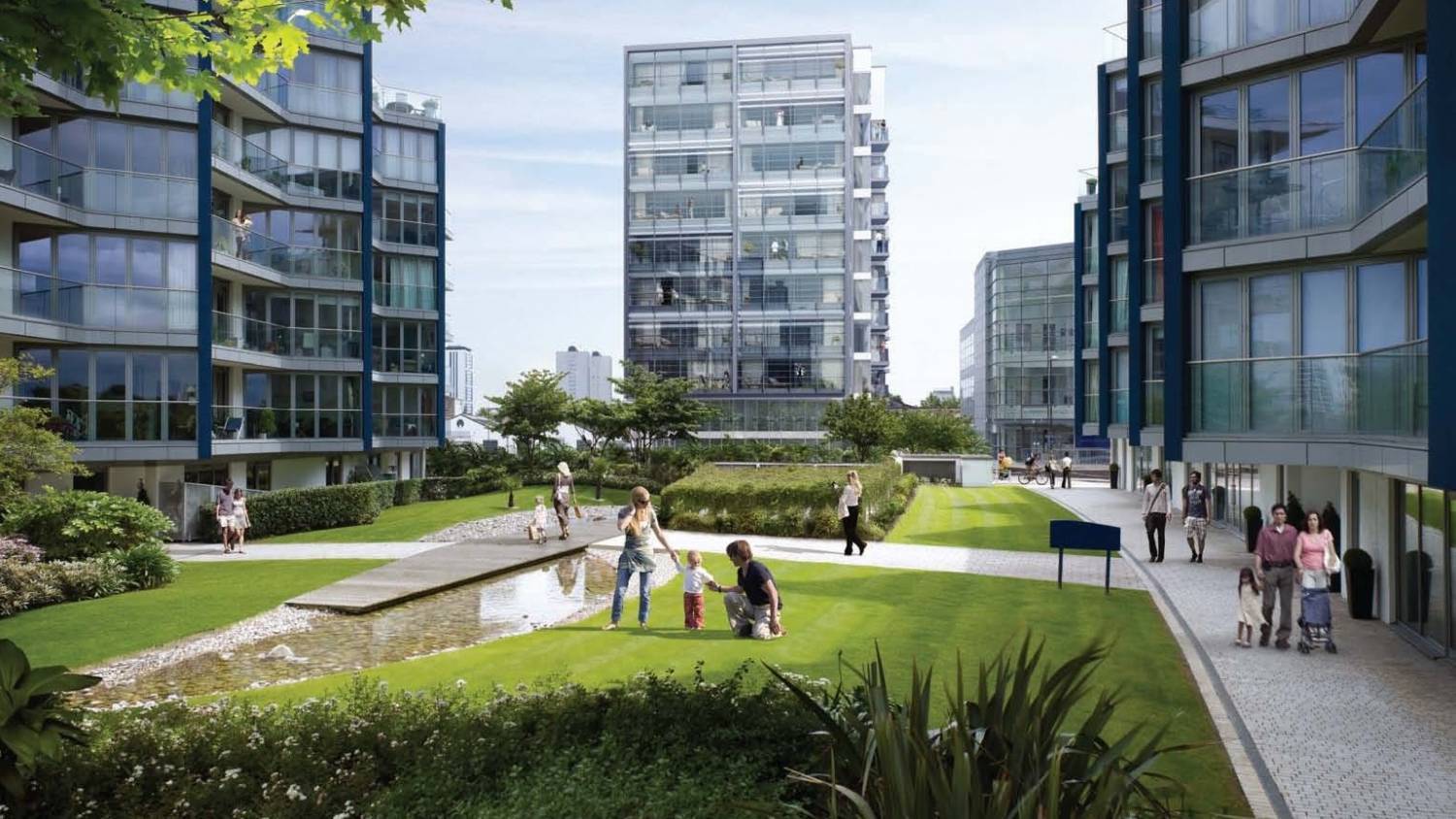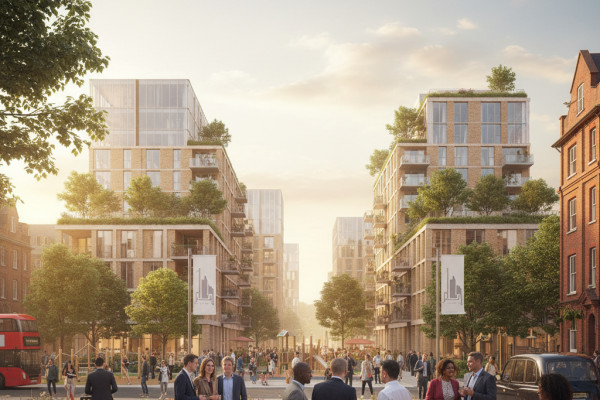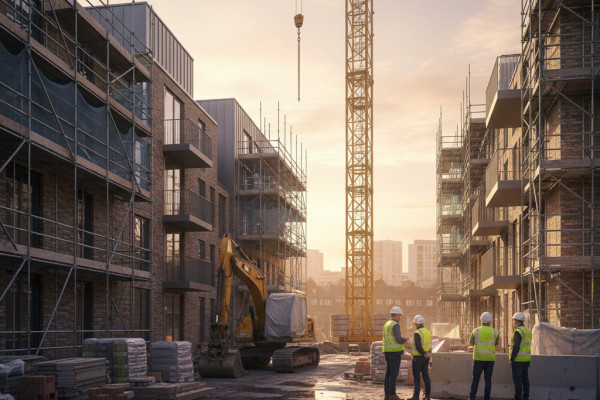
London's Housing Market Reshapes Itself: Opportunities for Home Seekers
A recent analysis unveils a significant shift in the affordability of housing in London, fuelled by a subdued market and increasing incomes. According to the most up-to-date data, nearly every borough in London now showcases improved affordability ratios for housing developments compared to the same period in the previous year.
This positive trend stands in stark contrast to the housing affordability crisis that had reached its zenith during that time across the UK.
The most remarkable change occurred in Richmond upon Thames, where the average home payment has decreased to 10.9 times the average earnings, down from 12.3 just a year ago. While the adjustments in other parts of the capital were less dramatic, Westminster and the City of London, notorious for their unaffordability, experienced a slight decrease, with average expenses now at 16 times earnings, compared to 16.1 the previous year.
Conversely, Newham witnessed an uptick in the multiple of wages required to purchase a home, with properties now averaging 7.2 times earnings.
Despite these variations, most London boroughs still surpass the national average, as the UK's average real estate cost now stands at 6.7 times the average earnings—a significant decrease from the peak of 7.3 last summer. Experts attribute this shift to declining property prices coupled with robust wage growth.
The table below offers a comprehensive overview of the changes in the ratio of affordability in various London boroughs from 2022 to 2023:
| London Borough | Ratio 2022 | Ratio 2023 | Difference |
| Richmond upon Thames | 12.3 | 10.9 | -1.4 |
| Waltham Forest | 8.5 | 7.4 | -1.1 |
| Merton | 11.3 | 10.4 | -0.9 |
| Barnet | 10.7 | 9.9 | -0.8 |
| Redbridge | 7.8 | 7.2 | -0.7 |
| Barking and Dagenham | 6 | 5.4 | -0.6 |
| Hounslow | 10.6 | 10 | -0.6 |
| Kingston upon Thames | 9.4 | 8.8 | -0.6 |
| Bromley | 8.6 | 8 | -0.6 |
| Enfield | 7.7 | 7.1 | -0.6 |
| Croydon | 6.8 | 6.3 | -0.5 |
| Havering | 7 | 6.5 | -0.5 |
| Lewisham | 8 | 7.6 | -0.4 |
| Southwark | 9.1 | 8.7 | -0.4 |
| Haringey | 9.2 | 8.9 | -0.3 |
| Tower Hamlets | 8.3 | 8.1 | -0.2 |
| Sutton | 7.4 | 7.2 | -0.2 |
| Brent | 10.5 | 10.3 | -0.2 |
| Hillingdon | 7.5 | 7.4 | -0.1 |
| Hammersmith and Fulham | 12.7 | 12.6 | -0.1 |
| Ealing | 9.2 | 9.1 | -0.1 |
| Kensington and Chelsea | 15.8 | 15.7 | -0.1 |
| Newham | 7 | 7.2 | +0.2 |
Table by 1newhomes. Source: ONS
The focal point remains on the uncertainty surrounding long-term mortgage rates and housing payments, often dubbed as the "new normal."
Analysts have recognized that household expenses have come under strain nationwide due to the cost-of-living crisis, which has eroded purchasing power, coupled with the impact of rising interest rates that have led to a significant 22% increase in average monthly mortgage costs over the past year.

Despite these challenges, experts continue to hold an optimistic view, suggesting that the market will slowly "readjust" as both buyers and sellers realign their expectations.
“Over time, it's probable that the disparity between average incomes and housing costs will diminish.”
This promising trend should be especially welcomed by first-time buyers, particularly in areas where better value for money becomes more attainable.






